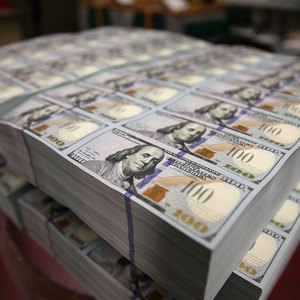
Most countries have the power to print currency. When a country goes into debt, it sometimes attempts to monetize this debt by printing more money, which will be used to pay off the existing debt. This practice has a number of downsides, however, the foremost of which is increased inflation. Some countries do not do this and instead choose to pay their debts with currency that is already printed.
Issuing Debt
The first step of debt monetization is the issuance of debt. When a country issues debt, it is selling debt obligations to investors or to other parties from whom it is receiving credit. For example, in the United States, the government may take on debt by selling Treasury bills. Holders of these bills are entitled to receive the money they spent on the bills, plus a small amount of interest, at a later date.
Debt Monetization
If a country issues debt that it cannot currently pay, it may choose to pay the debt by printing more currency. This new money will then be used to pay creditors when the government's debt comes due. Some countries don't have this option as they are not responsible for printing the currency their government uses. For example, countries in the European Union do not have the option of monetizing debt.
Risks
Debt monetization causes inflation. Inflation occurs when the value of a unit of currency -- the amount of goods and services it can buy -- lowers. As more currency is printed, the value of each unit of currency will be watered down. So if money is printed to pay off a debt, the investor is really receiving less money than he is entitled, as the value of the currency he receives has been lowered.
Advantages
Debt monetization can provide a means of allowing a government to pay off a debt for which it does not currently have sufficient cash. In order to maintain the stability of its currency, the government may choose to print money to pay off the debt and then, later, take this money out of circulation. If a currency continues to be watered down, it may negatively affect the country's economy, precipitating a spiral of increasing wages and prices.
References
Writer Bio
Michael Wolfe has been writing and editing since 2005, with a background including both business and creative writing. He has worked as a reporter for a community newspaper in New York City and a federal policy newsletter in Washington, D.C. Wolfe holds a B.A. in art history and is a resident of Brooklyn, N.Y.

